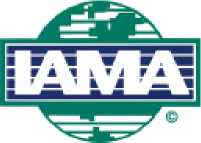provided by Research Papers in Economics

International Food and Agribusiness Management Review
Vol 5 Iss 3 2003
Agribusiness Executive Education and Knowledge Exchange:
New Mechanisms of Knowledge Management Involving the
University, Private Firm Stakeholders and Public Sector
Maria Ines Jatib, φ Fernando Vilella, Hector Ordonez, Gustavo Napolitano, and
Hernan Palau a
a All of the authors represent the Food & Agribusiness Programme, School of Agronomy, Buenos Aires
University San Martrn 4453, 1417 Buenos Aires, Argentina
Abstract
The Argentine scenario of the 90s shows that although competitiveness improved,
the agrifood system is unable to react immediately to the market because of low
efficiency, poor training in agribusiness and high taxation. In the year 2000,
FAUBA, the School of Agronomy of the University of Buenos Aires, created two
executive management postgraduate courses in food and agribusiness that
combined theory with hands-on exercises focused on the competitive management of
agrifood chains and on quality. The new courses intended to meet the demand of
the food and agribusiness private and public sectors with the aim of creating
knowledge, reconverting human resources and providing innovation capabilities,
key to building competitiveness.
© 2003 International Food and Agribusiness Management Association (IAMA). All rights reserved.
® Corresponding author: Tel: + 54-11-4524-8041
Fax: + 64-3-325-3839
Email: [email protected]
Other contact information: Fernando Vilella [email protected] ; Hector Ordonez
[email protected] ; Gustavo Napolitano [email protected] ; Hernan Palau
[email protected]
© 2003 International Food and Agribusiness Management Association (IAMA). All rights reserved.